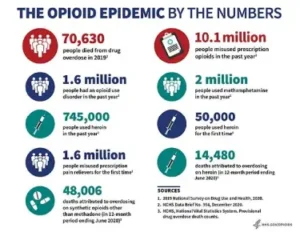Introduction:
In an era dominated by corporate power, the extensive reach of corporations shapes every facet of our lives—from the food we consume to the media we engage with. However, the enticing veneer of corporate advertising and innovation often conceals a darker reality.
The True Nature of Corporations:
It may seem provocative, but it is essential to recognize that corporations are fundamentally designed to prioritize profit generation for shareholders more than anything else. This goal is embedded in their legal and operational frameworks, which emphasize maximizing financial returns often at the expense of broader societal and environmental well-being.
While corporate social responsibility (CSR) initiatives and philanthropic efforts are widely publicized, they often serve as strategic tools to enhance public image, build brand loyalty, and drive profitability. CSR programs can act as a shield against criticism, allowing corporations to deflect scrutiny while continuing practices that may harm the environment or exploit vulnerable communities.
Moreover, the influence of corporations extends beyond their direct operations. Through lobbying efforts, political donations, and marketing campaigns, corporations can shape public policy and societal attitudes in ways that further entrench their profit-driven priorities. For instance, industries like tobacco, fossil fuels, and fast food have historically used their power to delay or water down regulations that would otherwise curb harmful practices.
This ability to influence decision-making underscores the significant imbalance of power between corporate power and public good.
Historical and Recent Corporate Misconduct:
Murder and Human Casualties:

Shell Oil’s operations in Nigeria during the 1990s provide a glaring example. The company faced allegations of complicity in human rights abuses against the Ogoni people, including the execution of activist Ken Saro-Wiwa and eight others. Although Shell denied direct involvement, their activities in the Niger Delta have been widely criticized for exacerbating violence and environmental devastation.
Health Impacts and Corporate Power Responsibility
 The global opioid crisis illustrate how the food and pharmaceutical industries have fuelled public health issues through corporate power. These sectors have aggressively marketed harmful products without sufficient regulatory oversight, prioritizing profits over public welfare.
The global opioid crisis illustrate how the food and pharmaceutical industries have fuelled public health issues through corporate power. These sectors have aggressively marketed harmful products without sufficient regulatory oversight, prioritizing profits over public welfare.
Environmental Degradation:
The fossil fuel industry’s role in climate change is undeniable and serves as a stark example of how corporate priorities can have catastrophic consequences. For decades, fossil fuel companies have minimized or outright denied the connection between carbon emissions and global warming, even when internal research revealed the environmental risks of their activities. Through misinformation campaigns, these corporations have sown public doubt about climate science, delaying the global transition to renewable energy.
This deception has contributed significantly to environmental degradation, including deforestation, water contamination, and air pollution, alongside the catastrophic effects of rising temperatures. Additionally, industries reliant on fossil fuels—such as aviation, shipping, and manufacturing—have compounded these impacts, further depleting natural resources and threatening biodiversity. Beyond fossil fuels, other industries, including mining, agriculture, and fashion, contribute to pollution and ecological destruction, often with limited accountability.
While some companies have begun to invest in renewable energy or “green” initiatives, these efforts are often critiqued as greenwashing—superficial changes designed to improve public perception without addressing the systemic environmental harm caused by their business models. Genuine change in corporate behaviour often occurs only when governments impose stringent environmental regulations or when public pressure, driven by activism and consumer choice, becomes impossible to ignore.
Profit Over People and Planet:
The profit-driven mindset of corporations underscores their fundamental nature: financial gain often trumps social and environmental considerations unless external forces, such as public advocacy or government regulation, compel otherwise. Many corporate decisions—such as outsourcing production to exploit cheap labor, prioritizing shareholder dividends over fair wages, or resisting the implementation of sustainable practices—illustrate this inherent conflict between profit motives and public welfare.
For example, the rise of gig economy platforms has been heralded for its convenience and efficiency, but the reality is that many of these corporations thrive on exploiting precarious labor, offering workers minimal job security, low wages, and no benefits. Similarly, agricultural conglomerates may prioritize high-yield farming techniques that rely on chemical fertilizers and pesticides, ignoring their long-term impacts on soil health, water quality, and local ecosystems.
This prioritization of profit over the planet also perpetuates inequality. While CEOs and shareholders amass wealth, workers, and communities at the bottom of the supply chain endure the most of environmental degradation and social injustice. These inequalities are worsened in developing countries, where regulatory frameworks are often weaker, allowing corporations to exploit resources and labor with minimal oversight.
These dynamic highlights the need for systemic reform to align corporate practices with the greater good. Policies that enforce sustainability, fair labor standards, and transparency are crucial in holding corporations accountable. Additionally, empowering consumers through education and encouraging ethical business models can create market incentives for companies to prioritize social and environmental responsibility over short-term profit.
By understanding the true nature of corporations, society can better advocate for policies and practices that place people and the planet above the relentless pursuit of financial gain.
The Crucial Role of Regulation:
The unchecked trajectory of corporate power poses severe risks to both society and the planet. Effective regulation is essential to ensure that corporate activities align with broader societal interests and sustainable practices.
Expert Opinions and Comparative Analysis:
Experts in economics and environmental science advocate for enhanced regulatory frameworks to mitigate corporate malpractice. A comparative analysis of regulatory success stories in countries like Sweden and Canada highlights the potential for reforms to foster corporate accountability.
Call for Action and Public Engagement:
As stakeholders in our global community, it is imperative that we demand more stringent corporate oversight. Engage in dialogues, support policies promoting transparency and accountability, and encourage ethical corporate behaviours through conscious consumerism.
Conclusion:
While corporations are integral to global economic growth, their power must be balanced with accountability to prevent societal and environmental harms. We must champion regulatory reforms to ensure a sustainable future where corporate innovation aligns with the greater good.
Engage with Us:
What are your thoughts on corporate regulation? Do you believe stricter measures are necessary to curb corporate excesses? Share your views in the comments below and join the conversation on social media.
References:
- Ken Saro-Wiwa 20 years on: Niger Delta still blighted by oil spills: https://edition.cnn.com/2015/11/10/africa/niger-delta-oil-pollution/index.html
- Corporations Are Not Our Friends: Big Business is Forced Into Accountability: https://www.huffpost.com/entry/corporations-are-not-our-friends-big-business-will-always-be-forced-into-accountability_b_593eb7dee4b0b13f2c6c992e
- Big corporations aren’t your friends: https://psuvanguard.com/big-corporations-arent-your-friends/
- The impact of food advertising on childhood obesity: https://www.apa.org/topics/obesity/food-advertising-children
- Market strategies used by processed food manufacturers to increase and consolidate their power: https://globalizationandhealth.biomedcentral.com/articles/10.1186/s12992-021-00667-7
- How food companies ‘sweetened the world’ and increased the risk of disease: https://www.theguardian.com/global-development/2023/jul/14/how-food-companies-sweetened-the-world-and-increased-the-risk-of-disease-acc
- Put People and Planet Before Profit: https://www.championsoftheplanet.org/planet-over-profit
- 50 years ago, an economist worried about unchecked corporate power. Here’s what his theory got wrong: https://hbr.org/2017/08/50-years-ago-an-economist-worried-about-unchecked-corporate-power-heres-what-his-theory-got-wrong
- Worries about life in 2025: https://www.pewresearch.org/internet/2021/02/18/worries-about-life-in-2025/

